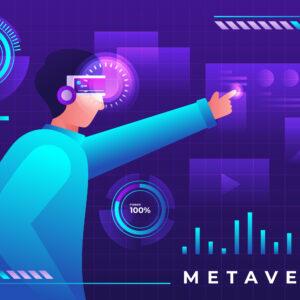In today’s rapidly evolving world, modern technology, particularly Artificial Intelligence (AI), has become a driving force behind significant changes in various industries. The effects of modern technology, including the latest updates in information technology, have had a profound impact on the job landscape. This blog will explore the transformative power of AI and its implications for the workforce.
How Modern Technology Is Changing the Job Landscape?
1. Automation and Job Displacement:
One of the most significant effects of modern technology, particularly AI, is automation. AI-powered systems and machines are increasingly replacing human labor in various industries. Tasks that were once performed by humans are now being automated, leading to job displacement. Routine and repetitive jobs, such as data entry, assembly line work, and customer service, are being taken over by AI-powered systems, resulting in a shift in the job market.
2. New Job Opportunities:
While automation may lead to job displacement, it also creates new job opportunities. As technology advances, new roles emerge that require human expertise to develop, maintain, and improve AI systems. Jobs in fields such as data science, machine learning, and AI engineering are in high demand. These roles require individuals with specialized skills to work alongside AI systems, ensuring their proper functioning and continuous improvement.
3. Enhanced Efficiency and Productivity:
The latest updates in information technology, driven by AI, have significantly enhanced efficiency and productivity in various industries. AI-powered systems can process vast amounts of data, analyse patterns, and make predictions faster and more accurately than humans. This enables businesses to streamline their operations, make data-driven decisions, and optimize their processes. As a result, productivity levels have increased, leading to improved outcomes and economic growth.
4. Augmented Decision-Making:
AI technology has the potential to augment human decision-making processes. By analyzing large datasets and identifying patterns, AI systems can provide valuable insights and recommendations to humans. This assists professionals in making informed decisions, reducing the risk of errors, and improving overall outcomes. However, it is important to note that human judgment and critical thinking remain crucial in validating and implementing AI-generated recommendations.
5. Skill Upgradation and Lifelong Learning:
The advent of modern technology, including AI, necessitates a shift in the skills required in the job market. As routine tasks become automated, there is a growing demand for individuals with advanced technical skills, critical thinking abilities, and adaptability. Lifelong learning and upskilling have become essential for individuals to remain relevant in the job market. Continuous learning and acquiring new skills will enable individuals to adapt to the changing job landscape and take advantage of emerging opportunities
Conclusion:
The impact of AI and modern technology on the job landscape cannot be ignored. While automation may lead to job displacement, it also creates new opportunities and demands a shift in skill sets. The latest updates in information technology, driven by AI, have enhanced efficiency, productivity, and decision-making processes. As AI continues to evolve, individuals and organizations must embrace lifelong learning and adapt to the changing demands of the job market. By doing so, we can harness the transformative power of AI to create a more efficient and prosperous future.
If you are looking for effects of modern technology, new information technology updates, latest updates in information technology, then you should register with a famous company like AllDayTechnology to get regular updates.









